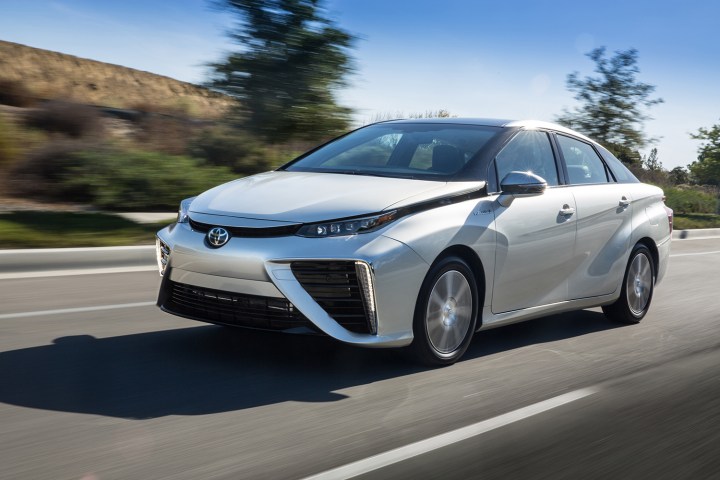
Hydrogen fuel cell vehicles (FCVs) are the future for Toyota. The Japanese automaker is reiterating its commitment to its FCVs by designing cheaper, mass-market passenger cars and SUVs, with goals of bringing the technology into buses and trucks as well. The hope is that the next generation of its Mirai hydrogen FCV will be made available in the early 2020s, a feat that many other automakers and industry experts thought would be nearly impossible — or at least, unprofitable.
Toyota believes that part of the problem in adopting FCVs is that they are currently still too expensive. By making these vehicles more affordable, the automaker hopes that FCVs will soon meet with the success of the hybrid. After all, Toyota has some experience bringing new eco-friendly technologies to greater audiences. The first Prius was made in the 1990s, far before other automakers were even considering their environmental impacts.
“We’re going to shift from limited production to mass production, reduce the amount of expensive materials like platinum used in FCV components, and make the system more compact and powerful,” Yoshikazu Tanaka, chief engineer of the Mirai, said in an interview with Reuters.
Moreover, Toyota wants to improve the performance of its Mirai cars. The next iteration of these vehicles should see an increased driving range of more than 460 miles, up from the 310-mile range the Mirai can currently achieve. By 2025, sources tell Reuters that the goal is for these FCVs to have a range of well over 600 miles.
This technology, at least for Toyota, has been a long time coming. Indeed, the carmaker has been developing these hydrogen-fueled cars since the early 1990s, and the company was the first to release a production FCV back in 2014 with the original Mirai. Of course, the high price tag associated with the vehicle (it’ll set you back $60,000), as well as the scarcity of refueling options, have stunted adoption. As it stands, fewer than 6,000 Mirais have been sold around the world.
But as a growing number of countries look to eliminate traditional combustion engines from the roads, interest in these new generation vehicles could increase. That’s certainly what Toyota is betting on.
Editors' Recommendations
- Hyundai bets big on hydrogen from sewage, plastic
- Hyundai’s hydrogen fuel cell truck makes hauling freight green and glamorous
- Hydrogen was the fuel of tomorrow, so what happened?
- Next-gen Toyota Mirai confirmed despite continuing issues with hydrogen tech
- Toyota uses hydrogen fuel cells to power one of its Japanese factories


